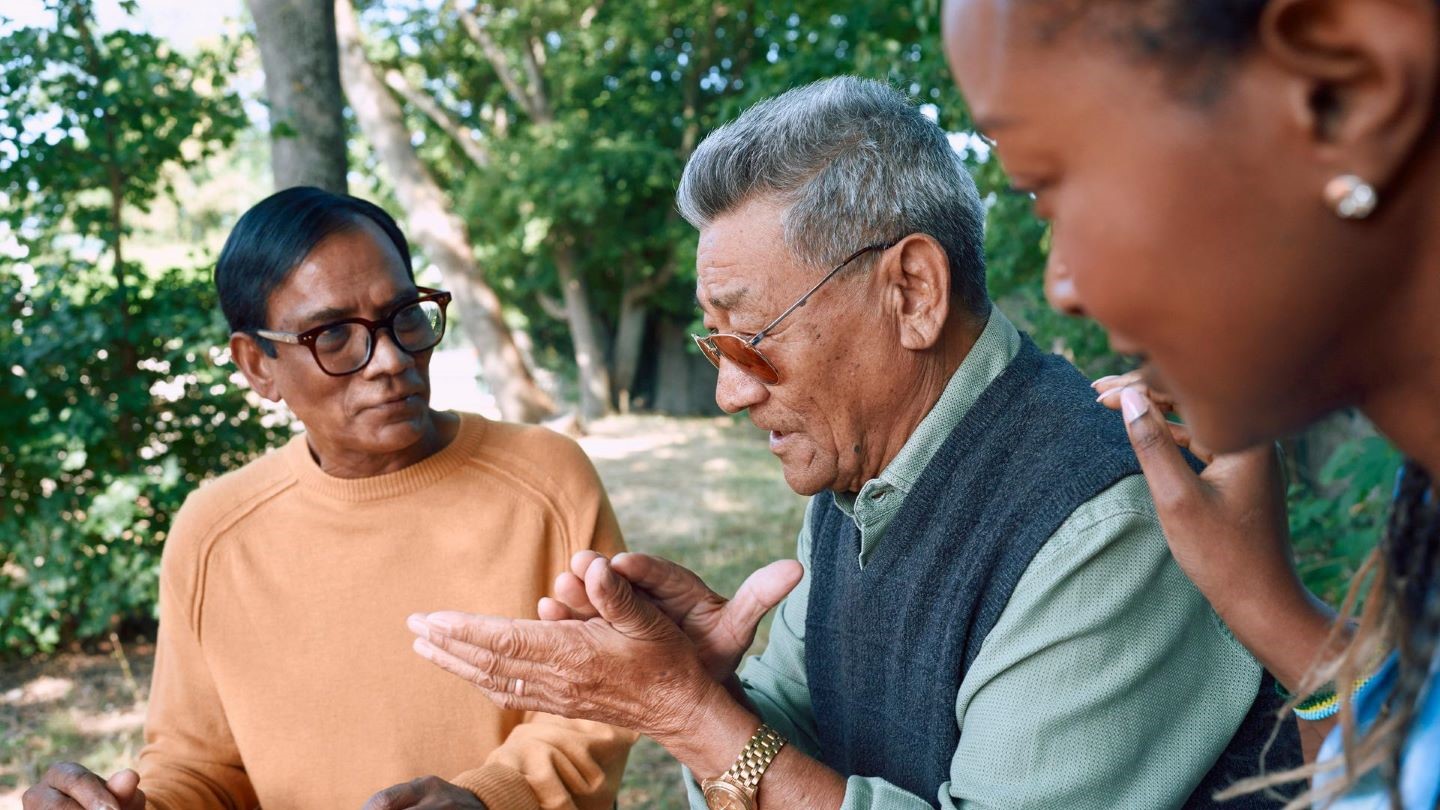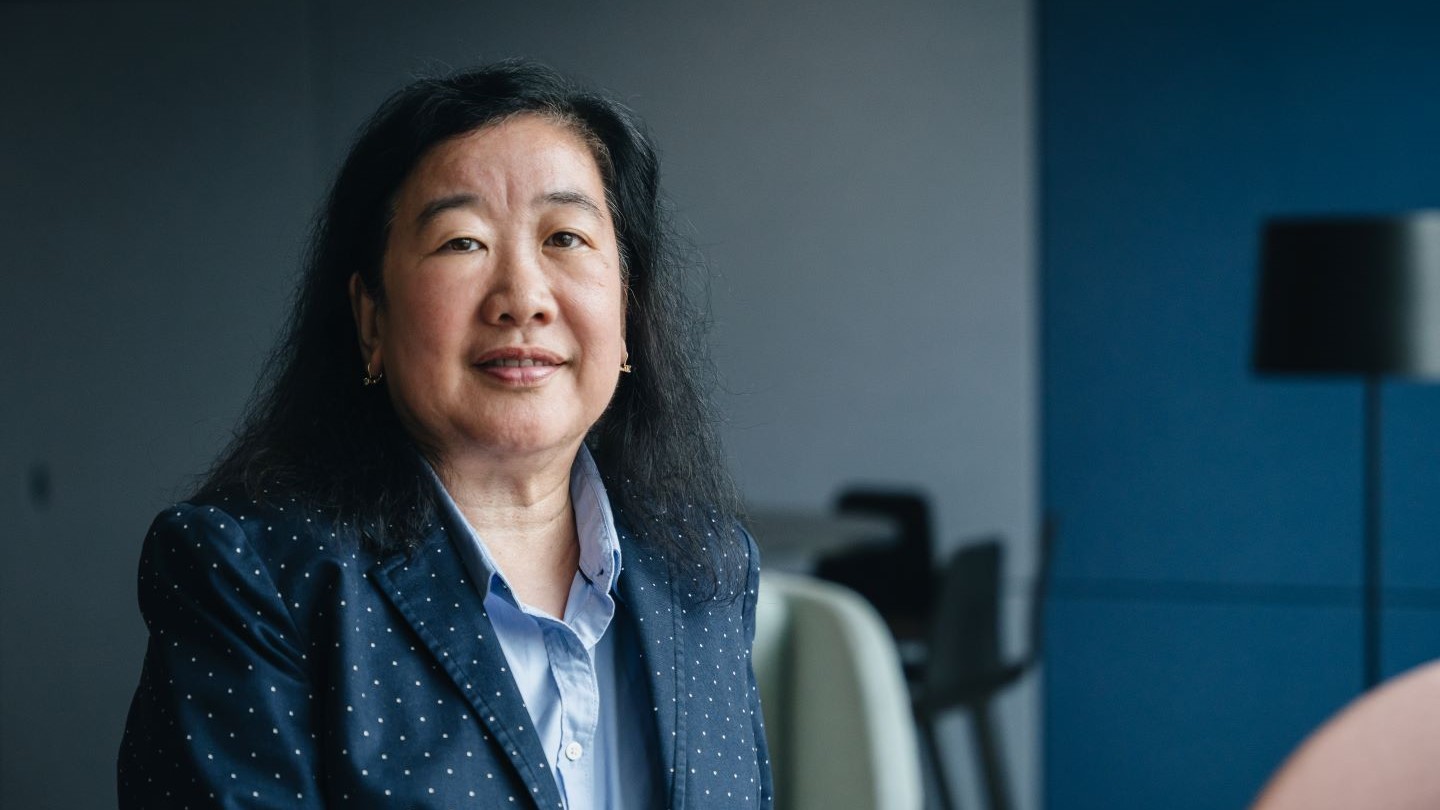Making a difference in clinical trials: The impact of engagement
At Boehringer Ingelheim, we know there is more to a disease than we see. That’s why we partner with patients, caregivers and trial site staff to design and conduct our clinical trials. By understanding their experiences and the challenges of clinical trial participation, we can co-create more inclusive solutions that reduce the burden and the barriers for participants.

Patient centricity and site centricity in clinical trials go hand-in-hand
Patients and their caregivers are experts in the day-to-day challenges of living with and managing their disease. Learning first-hand about their experiences and barriers to clinical trial participation is key to our goal of providing a better trial experience, but also ensuring that our trial outcomes address their needs.
Trial site staff are the ones delivering the patient experience in clinical trials. They also bring important insights, learnings, and experiences to the table. Thus, when designing our clinical trials, we engage early and systematically with patients, caregivers and trial site staff.
We listen, partner and make it our utmost priority to co-create solutions addressing their needs. This can help us recruit and retain patients in our clinical trials and, ultimately, accelerate the development of new medicines. Because patients can’t wait, when every single day counts.
Up to 96% of our trials are designed with the insights from our patient and trial site partners. Our unwavering commitment to the wellbeing of patients drives us to continuously improve.
“Boehringer is an organization that listens to their investigators and is attentive to one’s needs. They are available in real time to discuss issues that may arise, almost make you feel like “part of a family”, working together for a common cause.” shares Patricia LoRusso, DO, PhD, Chief of Experimental Therapeutics for Yale Cancer Center and Smilow Cancer Hospital.
Learn more about how we are partnering with patients, caregivers and trial site staff in clinical trials:
Sharon Lee, Executive Director of the Canadian Pulmonary Fibrosis Foundation (CPFF), has been involved in our global pulmonary fibrosis advisory boards and global clinical trials expert panel for several years. She advocates for people living with pulmonary fibrosis, as well as their caregivers. Sharon herself cared for her father who lived with pulmonary fibrosis.
“It's not just the patient that comes for the trial, but also the caregiver. They're the person that's driving that individual to the clinical trial visits, and they're the one who's supporting them while they're going through the process.” she explains.

Sharon participated in a trial simulation aimed at understanding and addressing the barriers associated with trial participation. This resulted in patient-centric changes in the trial design, and in the implementation of caregiver reimbursement - making it easier for caregivers to accompany patients to trial visits 1.
“It's important to engage early with patients, caregivers and sites, because that's the time when we have the flexibility to shape the trial design in a way to minimize participation barriers, but also to address the needs of diverse patients,” adds Kimberley Kallsen, PhD, Global Head of Patient & Site Engagement in Clinical Trials at Boehringer Ingelheim.
Fostering diversity in clinical trials
Race, ethnicity, gender, age and other factors can impact how people respond to the same medicine. Diverse representation in clinical trials can help us generate more robust data on whether a potential medicine will prove to be safe and effective for everyone who is living with the disease2. Historically, people from minority groups and other underserved communities have often been underrepresented in clinical trials. We believe that by engaging early with these communities, we can build long-term, trusted partnerships, which can improve diversity, equity and inclusion (DEI) in our clinical trials. At the same time, increasing DEI in clinical trials will help us address the increasing diversity in our global society.
Sharon Lee, who participates in our global diversity advisory board and represents diverse perspectives, including those of indigenous communities, believes that “together, we can create a wonderful community of people that feels respected, heard and that is getting access to the treatments that they need.”
Learn more about how we are fostering DEI in our clinical trials:
Sharon adds, “At the CPFF, we work very hard with underserved and diverse communities. We ask them what they need, how can we support them, how can we make sure that they get access to clinical trials. When we work with the indigenous community, we always go with respect and humility to say that we're here, we'd like to collaborate. Please tell us what you need. But we have to start from that grounding of building trust, empathy, and knowing that we're going to keep our word.”
References
- Jones, S., Flewett, M., Flewett, R., Lee S., Vick, B., Thompson, M., Pinnetti, S., Zoz, D.F., Hoffmann-Vold, A., Kreuter, M., Maher, T. M. Clinical trial simulations in pulmonary fibrosis: patient-focused insights and adaptations. ERJ Open Research May 2023, 9 (3) 00602-2022.
- https://www.fda.gov/consumers/minority-health-and-health-equity/clinical-trial-diversity
Related Content

Mutual benefit: Patient centricity in clinical trials

How we help underserved communities


